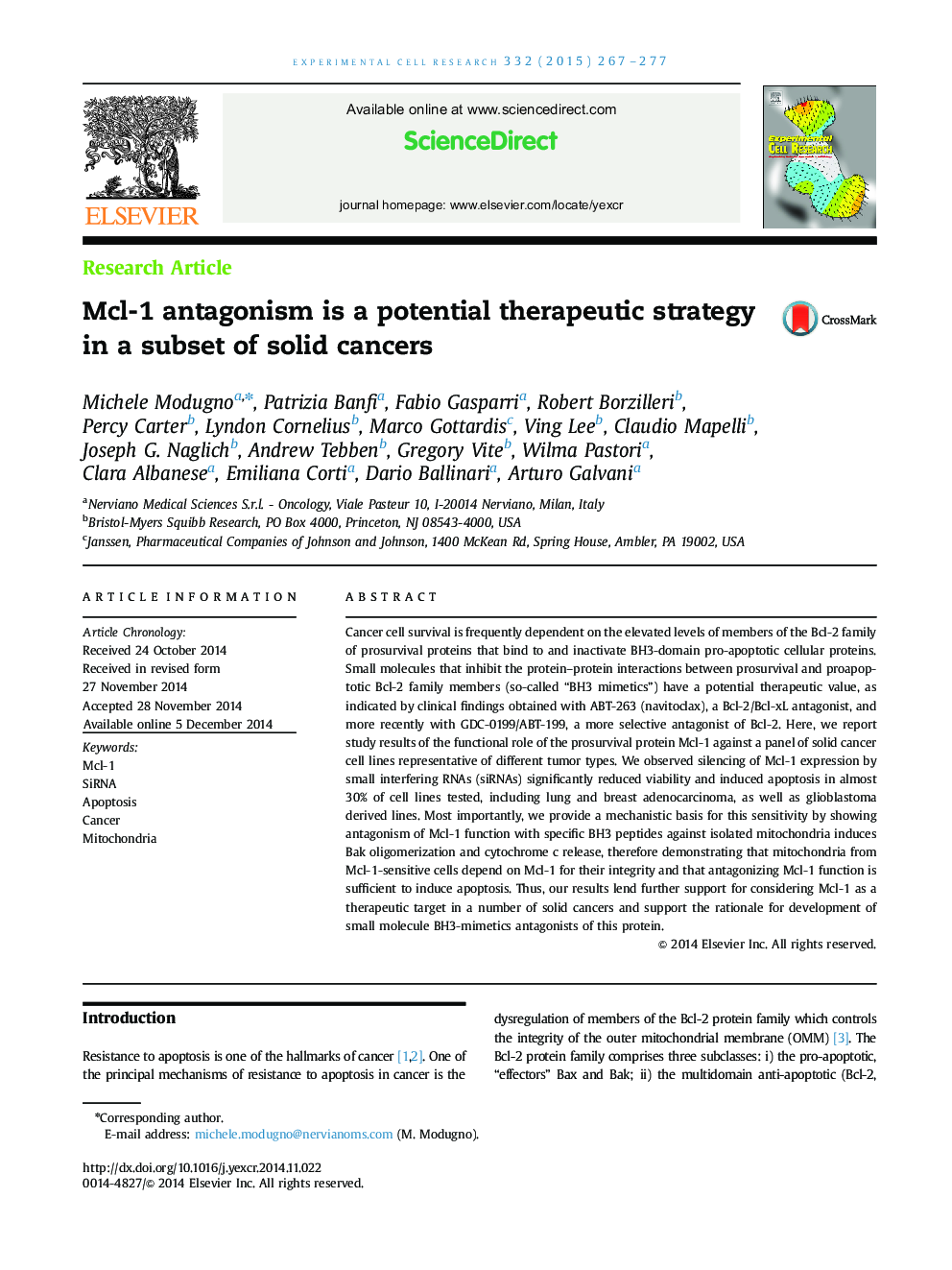| Article ID | Journal | Published Year | Pages | File Type |
|---|---|---|---|---|
| 10903888 | Experimental Cell Research | 2015 | 11 Pages |
Abstract
Cancer cell survival is frequently dependent on the elevated levels of members of the Bcl-2 family of prosurvival proteins that bind to and inactivate BH3-domain pro-apoptotic cellular proteins. Small molecules that inhibit the protein-protein interactions between prosurvival and proapoptotic Bcl-2 family members (so-called “BH3 mimetics”) have a potential therapeutic value, as indicated by clinical findings obtained with ABT-263 (navitoclax), a Bcl-2/Bcl-xL antagonist, and more recently with GDC-0199/ABT-199, a more selective antagonist of Bcl-2. Here, we report study results of the functional role of the prosurvival protein Mcl-1 against a panel of solid cancer cell lines representative of different tumor types. We observed silencing of Mcl-1 expression by small interfering RNAs (siRNAs) significantly reduced viability and induced apoptosis in almost 30% of cell lines tested, including lung and breast adenocarcinoma, as well as glioblastoma derived lines. Most importantly, we provide a mechanistic basis for this sensitivity by showing antagonism of Mcl-1 function with specific BH3 peptides against isolated mitochondria induces Bak oligomerization and cytochrome c release, therefore demonstrating that mitochondria from Mcl-1-sensitive cells depend on Mcl-1 for their integrity and that antagonizing Mcl-1 function is sufficient to induce apoptosis. Thus, our results lend further support for considering Mcl-1 as a therapeutic target in a number of solid cancers and support the rationale for development of small molecule BH3-mimetics antagonists of this protein.
Related Topics
Life Sciences
Biochemistry, Genetics and Molecular Biology
Cancer Research
Authors
Michele Modugno, Patrizia Banfi, Fabio Gasparri, Robert Borzilleri, Percy Carter, Lyndon Cornelius, Marco Gottardis, Ving Lee, Claudio Mapelli, Joseph G. Naglich, Andrew Tebben, Gregory Vite, Wilma Pastori, Clara Albanese, Emiliana Corti,
